Expander Pi
Available with a lead time
Expect dispatch between Mar 16 and Mar 19
Quantity Discounts:
- 10+ $41.85 (exc GST)
- 25+ $40.54 (exc GST)
Recommended Essentials:

$128.44
Restrictions apply to this equipment as it uses button/coin cell batteries:
- The equipment is intended to be used in trades, professions or industries
- The equipment is not intended for sale to the general public
- The equipment is not intended to be used where children are present
- You are aware that this equipment may not meet child safety testing requirements as it is not intended to be used by consumers or general public, but rather, is intended to be used in trades, professions or industries in conjunction with the limitations and restrictions listed above
- You are aware that these restrictions are due to a change in Australian legislation in 2022 for button/coin cell batteries
A declaration of use will need to be submitted during checkout.
Expander Pi is a versatile digital and analogue expansion board. It allows you to connect your Raspberry Pi to switches, lights, sensors, and many other devices giving you a way to communicate with the outside world.
The Expander Pi plugs onto the GPIO port on your Raspberry Pi and can be securely fitted to the Raspberry Pi using the optional mounting kit. It is powered through the host Raspberry Pi using the GPIO port or via the on-board power connector. Extended pins on the GPIO connector allowing you to stack the Expander Pi along with other expansion boards.
Using the Expander Pi you can connect 8 analogue inputs, 2 analogue outputs and 16 digital input or outputs to your Raspberry Pi. The Expander Pi also features an on-board Real Time Clock (RTC) to ensure that your Raspberry Pi always has the correct date and time.
Mounting holes are provided so you can securely bolt the Expander Pi to your Raspberry Pi with our mounting kit (sold separately).
The 16 input and output channels, using MCP23017 16-bit I/O expander from Microchip Technology Inc, can be independently configured as either inputs or outputs with a maximum input of 5 volts on each channel.
The 2 channel digital to analogue converter is a 12 bit resolution using Microchip MCP4822 dual channel 12-bit DAC with an internal voltage reference.
The 8 analogue to digital converter is a 12 bit resolution using a Microchip MCP3208 8-Channel 12-Bit A/D Converters with SPI Serial Interface with a maximum sample rate of 100 ksps and includes a 4.096 volt precision voltage reference. Please note the maximum sample rate is dependant on the programming language used and the CPU speed and usage. A separate Vref pin is included allowing you to use an external voltage reference. If you do choose to use an external voltage reference you will need to disconnect the onboard voltage reference IC by removing the solder bridge from jumper J1. Failing to remove the J1 solder bridge when using an external reference could cause damage to the onboard voltage reference or your external reference circuitry.
The Real Time Clock uses the DS1307 RTC real time clock and a CR2032 battery to maintain the date and time when the main system power is not available.
Warning: Do not connect the Expander Pi to your Raspberry Pi when the power is connected without a CR2032 battery installed. This can cause damage to the DS1307 RTC chip.
The Expander Pi uses a CR2032 button battery (battery not included).
Due to the use of the SPI bus and fixed addresses on the I2C bus the Expander Pi can not be stacked along side the ADCDAC Pi Zero or RTC Pi. Only one Expander Pi can be used on a Raspberry Pi.
The I2C address for the MCP23017 digital I/O chip is set to 0x20, if you use the Expander Pi with an IO Pi Plus/Zero you will need to ensure that the addresses for the IO Pi chips are not set to 0x20.
If you want to power the Raspberry Pi from the USB connector and use a separate supply for powering the Expander Pi we recommend that you remove the solder bridge "JUMPER" next to GPIO pin 1 on the Expander Pi, disconnecting it from the Raspberry Pi 5V pins.
Features
- 16 channel digital input / outputs
- 8 channel 12 bit resolution analogue input (ADC)
- 2 channel 12 bit resolution digital to analogue output (DAC)
- Real time Clock (RTC) with CR2032 battery holder.
Specifications
Digital IO:
- Vdd (isolation jumper removed): 4.5V - 5.5V
- Voltage at I/O Pins: 0 - Vdd
- Current at I/O Pins (sourced or sunk): 25 mA
- Maximum current on all I/O pins combined: 125 mA
ADC Inputs:
- Maximum ADC Input Voltage when using on-board voltage reference: 4.096V
- Maximum ADC Input Voltage when using an external voltage reference: 5V
- Maximum External Reference Voltage: 5V
- Analogue input type: single-ended or pseudo-differential pairs
- All inputs and outputs w.r.t. VSS: -0.6V to VDD +0.6V
- Max ADC Sample Rate: 100,000 samples per second
- Under Python 2.7 on a Pi 3+: 4400 samples per second.
DAC Outputs:
- Maximum output voltage at Gain 1: 2.048V
- Maximum output voltage at Gain 2: 4.096V
- Maximum output current: 25 mA
Assembly Guide
The Expander Pi is supplied with the 40 pin GPIO connector and the CR2032 battery connector unsoldered.
Before using the Expander Pi you will need to solder both connectors onto the PCB. We suggest soldering the 40 pin GPIO connector first and then the battery connector. Soldering the battery connector first will make it difficult to access some of the pins on the GPIO connector.
Documents
Exact shipping can be calculated on the view cart page (no login required).
Products that weigh more than 0.5 KG may cost more than what's shown (for example, test equipment, machines, >500mL liquids, etc).
We deliver Australia-wide with these options (depends on the final destination - you can get a quote on the view cart page):
- $3+ for Stamped Mail (typically 10+ business days, not tracked, only available on selected small items)
- $7+ for Standard Post (typically 6+ business days, tracked)
- $11+ for Express Post (typically 2+ business days, tracked)
- Pickup - Free! Only available to customers who live in the Newcastle region (must order online and only pickup after we email to notify you the order is ready). Orders placed after 2PM may not be ready until the following business day.
Non-metro addresses in WA, NT, SA & TAS can take 2+ days in addition to the above information.
Some batteries (such as LiPo) can't be shipped by Air. During checkout, Express Post and International Methods will not be an option if you have that type of battery in your shopping cart.
International Orders - the following rates are for New Zealand and will vary for other countries:
- $12+ for Pack and Track (3+ days, tracked)
- $16+ for Express International (2-5 days, tracked)
If you order lots of gear, the postage amount will increase based on the weight of your order.
Our physical address (here's a PDF which includes other key business details):
40 Aruma Place
Cardiff
NSW, 2285
Australia
Take a look at our customer service page if you have other questions such as "do we do purchase orders" (yes!) or "are prices GST inclusive" (yes they are!). We're here to help - get in touch with us to talk shop.
Have a product question? We're here to help!
Videos
View AllGuides
Raspberry Pi 5 Vs Raspberry Pi 4 Model B | Comparison & Benchmarking
Raspberry Pi 5 | Review, Performance & Benchmarks
How to use a PiRelay HAT for Raspberry Pi - Multiple Relay Control with Voice or GUI
How to use Stepper Motors and DC Motors with a Raspberry Pi - Adafruit DC & Stepper Motor HAT
Projects
safePower
ESP32 IR-Triggered Camera with Home Assistant Integration
LuMa 1 - The Neo Disco Ball
Educational Workshops
Raspberry Pi Workshop for Beginners
Makers love reviews as much as you do, please follow this link to review the products you have purchased.


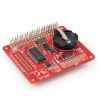
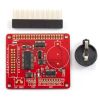


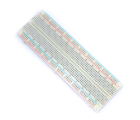



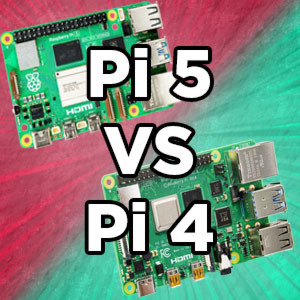


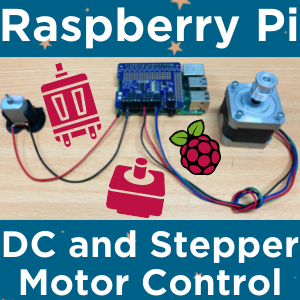
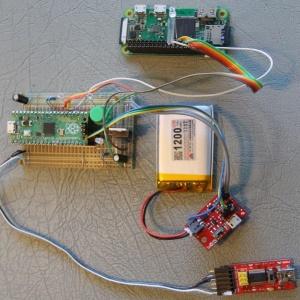
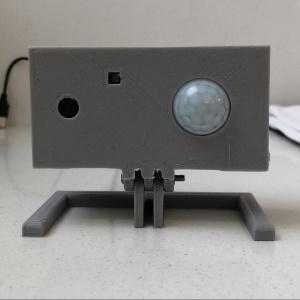
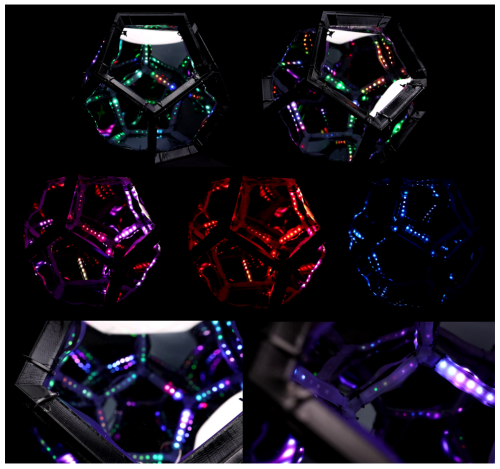


Product Comments